PREVIEW
Guests heard on Volume 128
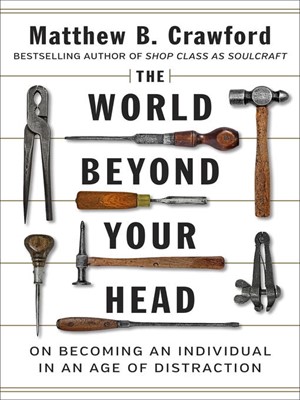
Matthew Crawford, author of The World Beyond Your Head: On Becoming an Individual in an Age of Distraction, on how skillful engagement with the material world provides the setting for true individuality (Archive Feature available)
read more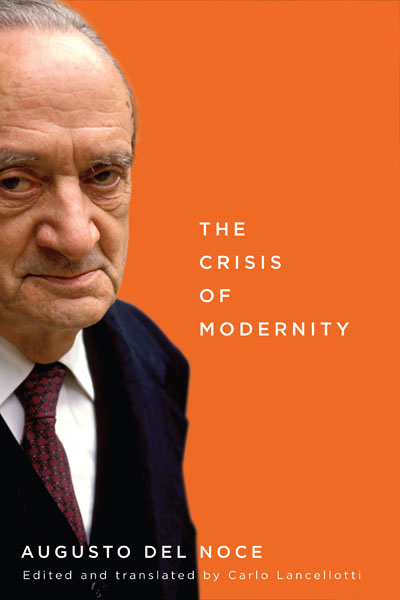
Carlo Lancellotti, editor of The Crisis of Modernity, on Augusto Del Noce’s critique of modernity (Archive Feature available)
read more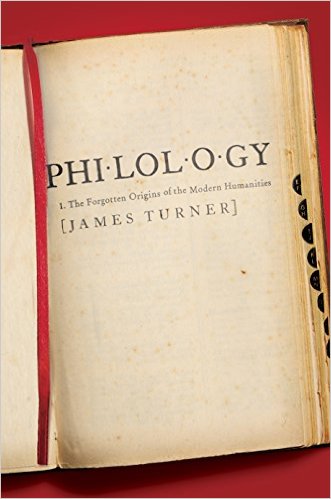
James Turner, author of Philology: The Forgotten Origins of the Modern Humanities, on the origins of the humanities in the venerable discipline of philology
read more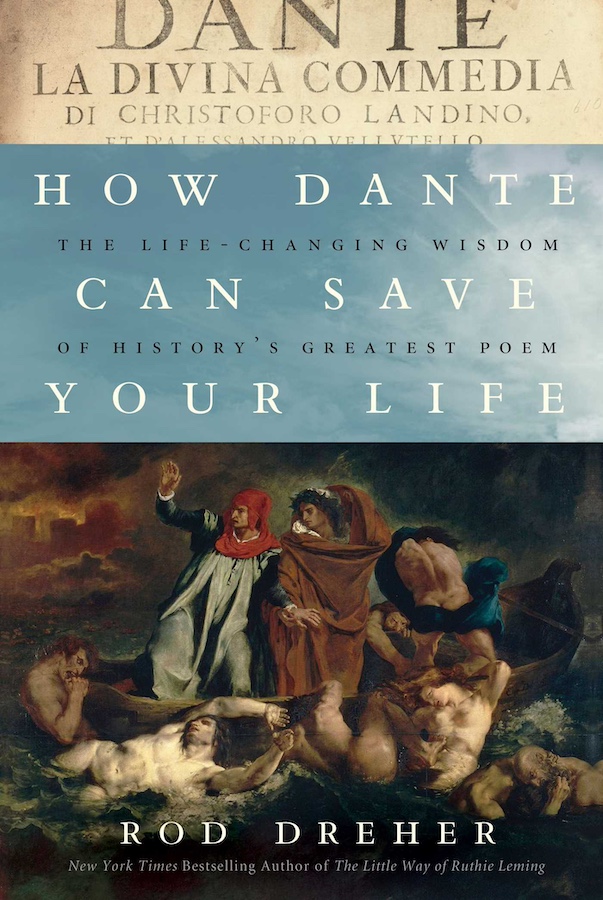
Rod Dreher, author of How Dante Can Save Your Life, on what he learned from Dante’s Divine Comedy
read more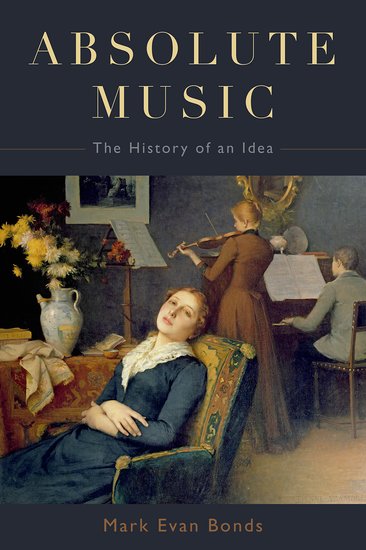
Mark Evan Bonds, author of Absolute Music: The History of an Idea, on how the idea of “absolute music” waxed and waned
read more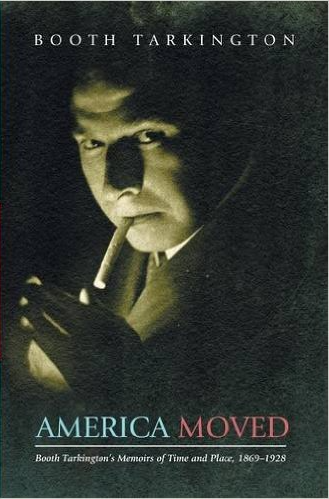
Jeremy Beer, editor of America Moved: Booth Tarkington’s Memoirs of Time and Place, 1869-1928, on the neglected accomplishments of a forgotten American novelist
read moreRelated reading and listening
- “The Emersonian elixir” —
FROM VOL. 20 Robert Richardson and Roger Lundin discuss how Ralph Waldo Emerson’s legacy lingers in American culture. (18 minutes) - Mars Hill Audio Journal, Volume 164 — FEATURED GUESTS: Dana Gioia, Brady Stiller, Robert Royal, Richard DeClue, Tiffany Schubert, and Joonas Sildre
- The personal element in all knowing — Mark Mitchell connects key aspects of Michael Polanyi’s conception of knowledge with Matthew Crawford’s insistence that real knowing involves more than technique. (34 minutes)
- Gratitude, vitalism, and the timid rationalist — In this lecture, Matthew Crawford draws a distinction between an orientation toward receiving life as gift and a timid and cramped rationalism that views man as an object to be synthetically remade. (52 minutes)
- Submission to mathematical truth — In this lecture, Carlo Lancellotti argues that integration of the moral, cognitive, and aesthetic aspects of mathematics is needed in a robust liberal arts mathematics curriculum. (25 minutes)
- Music, silence, and the order of Creation — In this lecture, Ken Myers explains how it is that our participation in harmonic beauty in music is a kind of participation in the life of God, in Whom all order and beauty coheres and is sustained. (61 minutes)
- Angelic voices: saying or singing? — Pope Benedict XVI on the intrinsically musical character of angelic utterance
- The gift of meaningful work — In this lecture, D. C. Schindler argues that genuine work is inherently meaningful and facilitates an encounter with reality and therefore, ultimately, with God. (36 minutes)
- The physical beauty of music — Music can be likened to a cathedral, says professional guitarist Gordon Kreplin, when it creates through silence and sound a meditative space into which one may enter and encounter God. (14 minutes)
- Music and the meaning of Creation — In this 2018 lecture, Ken Myers advocates for a recovery of the pre-Enlightenment idea of the intelligibility of music. (61 minutes)
- Counterpoint as a “spirited discussion” — In this essay, John Ahern explains the beauty and order of counterpoint, the accumulation of multiple melodies that come together in a harmonious whole. (20 minutes)
- The Decline of Formal Speech and Why It Matters — John McWhorter examines the reasons behind the decline in articulate speech and writing in the late 20th century, and the implications of this change across many areas of culture. (55 minutes)
- Immersion in a different time —
FROM VOL. 17 Literary critic Alan Jacobs considers the author Patrick O’Brian as perhaps the best historical novelist ever. (13 minutes) - Recovering the primacy of contemplation — Augusto Del Noce finds in St. Augustine resources to diagnose the fatal flaw in progressivism
- Confronting the supremacy of science — Augusto Del Noce on the belief that science is the only true form of knowledge
- The roots of American disorder — In this reading of an article from 2021 by Michael Hanby, the critique of Marxism in Augusto del Noce’s work is compared with texts from the American Founders. (79 minutes)
- Augusto Del Noce’s critique of modernity —
FROM VOL. 128 Physicist and mathematician Carlo Lancellotti discusses the life and work of twentieth-century Italian philosopher, Augusto Del Noce. (25 minutes) - Automation and human agency —
FROM VOL. 150 Philosopher and mechanic Matthew Crawford laments the losses of human skill that correspond with gains in mechanical automation. (21 minutes) - Getting outside of our heads —
FROM VOL. 128 Philosopher and motorcycle mechanic Matthew Crawford explores what forms the self, arguing that individuality is an earned competence achieved through habits of submission to various tasks, traditions, and authorities. (20 minutes) - Forms as portals to reality — Ken Myers explains the ancient classical and Christian view that music embodies an order and forms that correspond to the whole of created reality, in its transcendence and materiality. (54 minutes)
- How music reflects and continues the created order — Musician, composer, and teacher Greg Wilbur explores how music reflects the created order of the cosmos. (55 minutes)
- Martyrdom and music — To mark the feast day of the Martyrdom of Polycarp, we offer an interview from 2004 with composer J. A. C. Redford and poet Scott Cairns about their work together on an oratorio based on the story of Polycarp’s death. (15 minutes)
- The de(con)struction of the humanities (and of truth) — Historian Gertrude Himmelfarb on the skeptical tendencies of the postmodern academy
- From university to multiversity to demoversity — Alvin Kernan on tectonic shifts in higher education since the 1960s
- Bonds, Mark Evan — FROM THE GUEST PAGE: Mark Evan Bonds is the Cary C. Boshamer Distinguished Professor of Music Emeritus at the University of North Carolina, Chapel Hill, where taught from 1992 until his retirement in 2023.
- Beer, Jeremy — FROM THE GUEST PAGE: Jeremy Beer is the co-founder and executive chairman of AmPhil, a national professional services firm that serves mission-driven enterprises.
- Crawford, Matthew B. — FROM THE GUEST PAGE: Matthew B. Crawford is a Senior Fellow at the University of Virginia’s Institute for Advanced Studies in Culture and a New York Times bestselling author.
- Turner, James — FROM THE GUEST PAGE: James Turner is Cavanaugh Professor of Humanities and Professor of History Emeritus at the University of Notre Dame. He taught for 20 years at the University of Notre Dame, where he belonged to both the History Department and the graduate Program in History and Philosophy of Science.
- Dreher, Rod — FROM THE GUEST PAGE: Rod Dreher is an author and journalist. He is the Director of the Network Project at the Danube Institute (Budapest, Hungary) and a columnist for The European Conservative.
- Maximalist music —
FROM VOL. 8 Dominic Aquila explains how — unlike the minimalist composers John Cage and Philip Glass — Arvo Pärt uses purity and simplicity to point beyond the created world to the transcendent Creator. (6 minutes) - Turn to the Lord your God — Ken Myers introduces musical settings from the book of Lamentations, traditionally sung during Holy Week. (26 minutes)
- Mars Hill Audio Journal, Volume 157 — FEATURED GUESTS: Allan C. Carlson, Matthew Stewart, Steven Knepper, Holly Ordway, Norm Klassen, and Norman Wirzba
- Music without emotivism — Julian Johnson discusses how novel, historically speaking, is the idea of complete relativism in musical judgment. (33 minutes)
- Music, passion, and politics — In this interview from 2001, Carson Holloway discusses his book All Shook Up: Music, Passion, and Politics, which summarizes the dramatic chasm between the classical and modern views of political ends and of musical means. (45 minutes)
- The mysteries and glory of Christmas and its music — Ken Myers presents examples of music from five centuries that capture some sense of the astonishing fact of the Nativity of our Lord. (15 minutes)
- Mars Hill Audio Journal, Volume 154 — FEATURED GUESTS: Felicia Wu Song, Michael Ward, Norman Wirzba, Carl Trueman, D. C. Schindler, and Kerry McCarthy
- Stabat Mater dolorosa — Ken Myers offers some thoughts on the aesthetics of sympathy, and introduces some of the musical settings of the remarkable medieval poem known as “Stabat Mater dolorosa.” (23 minutes)
- Art as aestheticism, love as eroticism, politics as totalitarianism — Augusto Del Noce on the “technological mindset” and the loss of the sense of transcendence
- The meaning of the modern eclipse of authority — Augusto Del Noce on the greatest modern reversal
- Explaining the totalitarianism of disintegration — Michael Hanby complements the analysis of modernity offered by Augusto Del Noce
- Aspects of our un-Christening — In this Friday Feature — presented courtesy of Biola University — Carlo Lancellotti talks with Aaron Kheriaty about the central ideas in Augusto Del Noce’s writings. (43 minutes)
- The light shines in the darkness — Physicist David Park explores the physical, aesthetic, and spiritual aspects of light, considering the phenomenon of light in profound ways, from spiritual meanings embedded in our culture to the challenging questions put forth by great scientists and philosophers. (17 minutes)
- What is at stake for us in a self-driving future? — Matthew Crawford vividly details the “personal knowledge” acquired in interaction with physical things, their mecho-systems, and the people who care for them. (16 minutes)
- Craftsmanship and the infallible judgment of reality — Matthew B. Crawford on the psychic satisfactions of manual work
- Dialectic of reverence and rebellion — Matthew B. Crawford on the personal knowledge acquired in apprenticeship
- Mars Hill Audio Journal, Volume 150 — FEATURED GUESTS: David I. Smith, Eric O. Jacobsen, Matthew Crawford, Andrew Davison, Joseph E. Davis, and Rebecca Konyndyk DeYoung
- On faithful fiction: Larry Woiwode, Alan Jacobs, & Jay Tolson — This Friday Feature represents three interviews on fiction from Volume 3: Larry Woiwode on what makes good fiction, Alan Jacobs on P. D. James’s The Children of Men, and Jay Tolson on Walker Percy. (29 minutes)
- The Incarnation presented in music — Composer J.A.C. Redford talks about the theme of the Incarnation as musically presented in his choral symphony for Christmas entitled “Welcome All Wonders.” (23 minutes)
- Music for St. Cecilia’s Day — Ken Myers introduces several poems and related musical compositions that celebrate the heavenly gift of music and thereby honor St. Cecilia. (21 minutes)
- How myth speaks to deep desires in the human heart — Rolland Hein explains that George MacDonald is a writer of myth functioning rightly, and that such myth affects people a-rationally, stirring something in them much deeper than intellect or emotion alone. (15 minutes)